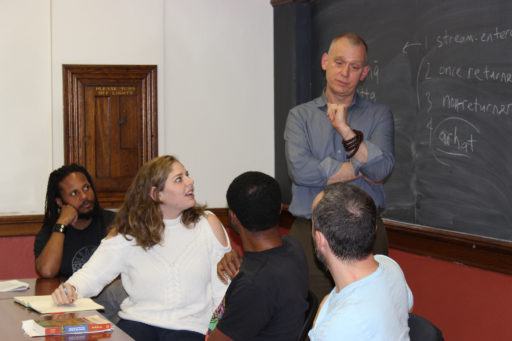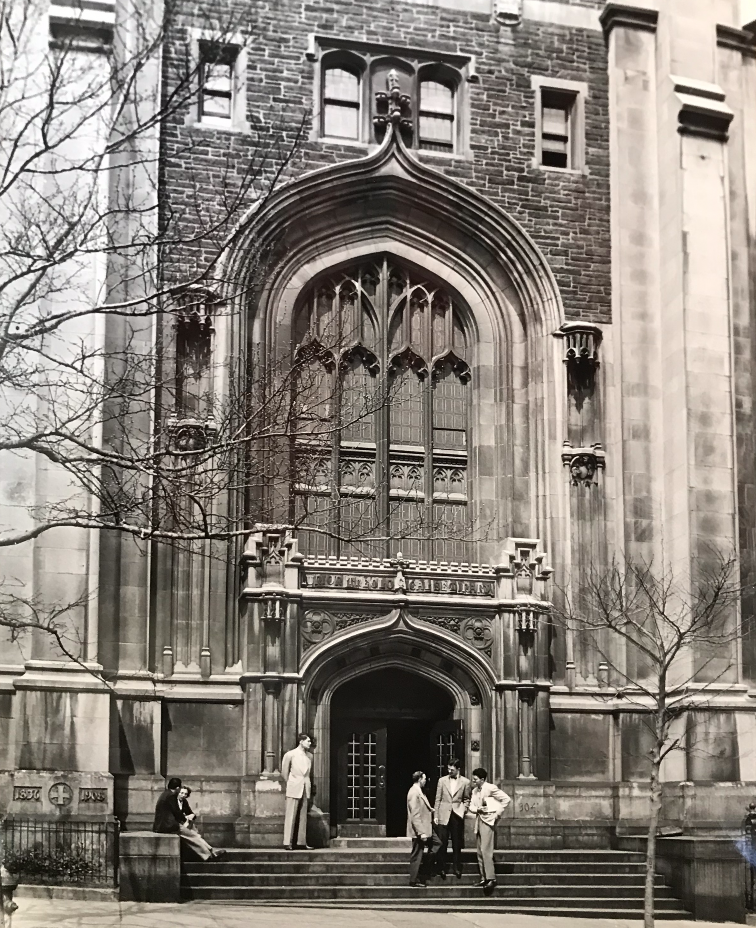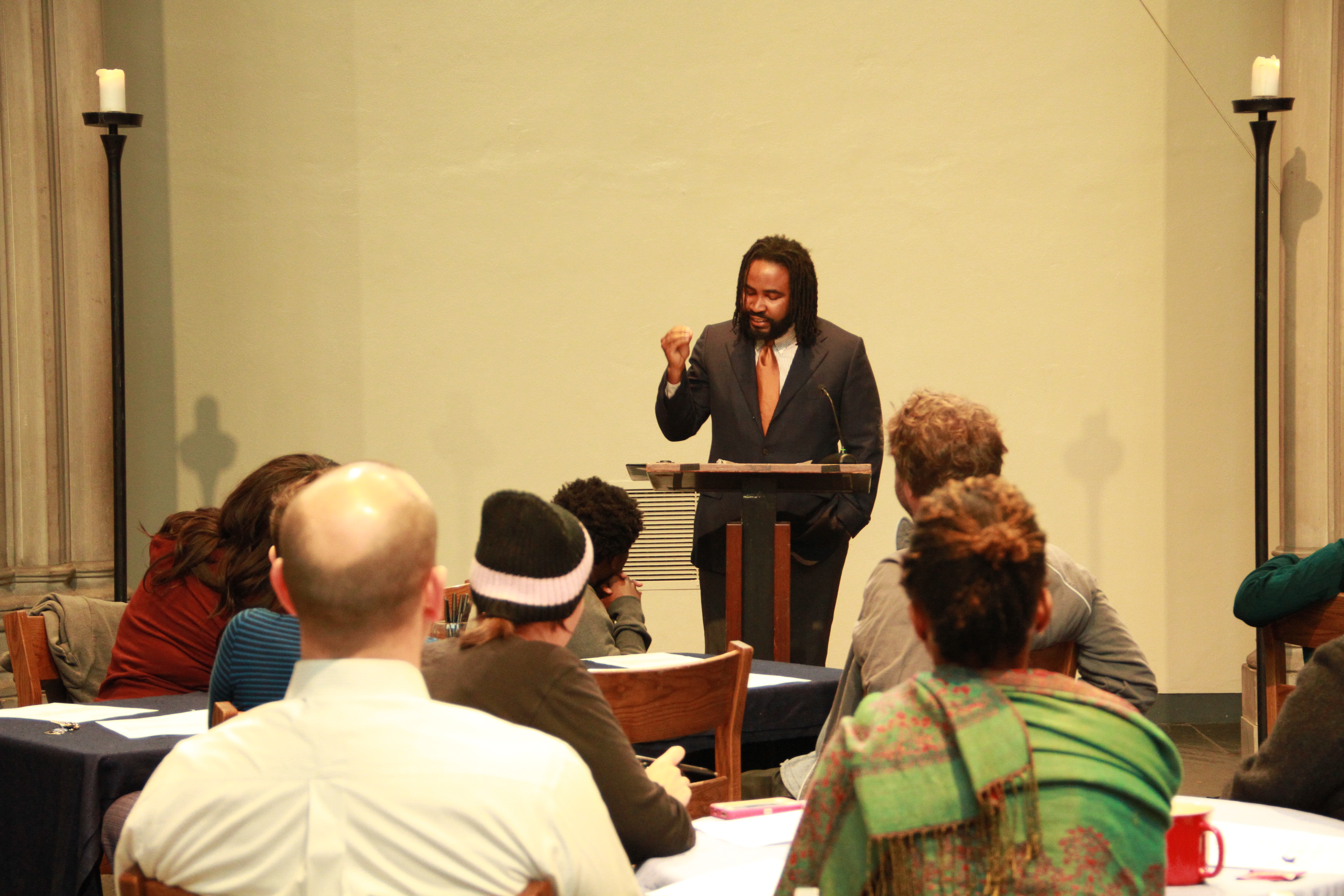A Changing Landscape
It is no secret that higher education in the U.S. increasingly faces an unprecedented set of challenges that threaten the sustainability of institutions both large and small. It also should come as no surprise to anyone paying attention that seminaries face these very same challenges and more. Without the built-in safety net of either a university or a denominational affiliation, small, independent theological schools are among the most vulnerable of all.
In the coming years, more and more divinity schools and seminaries will be forced to consider the excruciating decision to close their doors forever. The institutions that survive will be those with enough agility to develop timely responses to the rapid changes taking place across the social, cultural, religious, and educational landscapes. With any luck, the institutions that thrive will be those that adapt creatively and proactively rather than defensively and reactively.
Faced with these complex challenges, small, independent theological schools in particular must continually ask themselves the kinds of existential questions with enormous practical implications: Who are we? What do we have to offer the world that is unique? How can we do what we do better? What are we not doing that we should be?

Union Theological Seminary (UTS) currently fulfills its mission of preparing all of its students for committed lives of service to faith communities, the academy, and society with a variety of traditional seminary degree programs that are second to none among its peers. The commitment to social justice that suffuses all parts of the curriculum furthermore makes UTS stand out in the contemporary ecology of theological education. The addition of Buddhist and Islamic programs to our longstanding partnership with The Jewish Theological Seminary makes our interreligious reality distinctive. There really is no other place quite like it anywhere else in the world.
But along with this unique commitment comes a unique obligation. If there really is nowhere like it, then it is incumbent upon UTS to do everything it can to reach new and different constituencies with the kinds of educational opportunities that it is uniquely positioned to offer. It is also imperative that the school think creatively about a perennial question that has resurfaced time and again throughout the school’s history: What should the future of theological education look like?
Though the future is always uncertain, a variety of ongoing trends are already making a few things clear. To remain sustainable, theological education is going to have to meet the vocational needs of a new and more diverse constituency of students, reaching them where they are with flexible formats, creative pedagogies, and innovative credentialing opportunities that go beyond the traditional master’s and doctoral degrees usually associated with seminaries and divinity schools. According to Rev. Pamela Cooper-White, Ph.D., Union’s Vice President of Academic Affairs and Dean, current realities will likely require a both/and approach. “At Union,” Cooper-White suggests, “we want to continue to equip students for ordained ministry while continuing to expand our curriculum in imaginative and bold ways to prepare for a wide range of spiritually grounded vocations wherever they hope to work and live.”
With all of these necessities in mind, UTS is currently developing a number of new educational offerings (e.g., including new avenues for lifelong learning and continuing education, updated tracks, refined degree trajectories, and a new master’s degree, as well as a range of all-new graduate-level for-credit certificate programs). These programs are designed to equip an array of new kinds of students who may have never considered seminary with the tools they will need to join in the work of building a more just, equitable, and sustainable world.
Ideally, these new programs will build on the seminary’s history while simultaneously preparing the school for the future. “Union has always been a school with our doors wide open to the world,” President Serene Jones explains, “and in 2021 we are building new doors that will open the school even wider. All of our new programming is fundamentally about creating new pathways for students from a variety of backgrounds to walk through the doors—even the virtual doors—of Union Theological Seminary.”
Solutions to Historical Questions
One way of answering pressing questions about the future of theological education is to carefully consider whether traditional theological degrees are giving seminary graduates what they really need. Such considerations are by no means new, either for seminaries in general or for UTS in particular. In fact, fundamental questions about both the means and ends of theological education have been part and parcel of the UTS legacy from the very start. As an institution founded to provide a “full and thorough education, in all the subjects taught in the best theological seminaries in the United States,” the school was born, after all, when a few Presbyterians began feeling that no other seminary was adequately equipping ministers for their work in urban contexts and decided to do something about it.
What should the future of theological education look like? For the founders of UTS, a few things were clear: It needed to be rigorous, ecumenical, thoroughly modern, and attuned to the realities of a thriving city context. At the time, it also needed to meet the particular educational needs of mostly white, male, Protestant ministers—a legacy that all theological education in this country must continuously reckon with. Over the decades, the school would eventually open its doors more widely to women and communities of color, changes that shifted—and continue to deeply shift—how theological education was and is understood. 
In the latter half of the twentieth century, the administration also decided that a thoroughgoing commitment to the struggle for a more just world should undergird every aspect of a UTS education. It became clearer that theological education was about more than just training pastors—it reached into every imaginable world of work. Over time, these developments helped transform the school from its early status as a premiere destination for white, liberal, Protestant (male) ecumenism into the theological training grounds for all sorts of liberationists, feminists, womanists, socialists, and eco-justice and interfaith activists.
The history of some of these developments is quite literally baked into the historical growth of what became the flagship seminary degree in the contemporary U.S. context, the Master of Divinity (M.Div.). Initially emerging as a replacement for the older standard, the Bachelor of Divinity, the M.Div. quickly became the benchmark credential for those heading toward some form of congregational and or ecclesial ministry in a Christian denomination. But as the scope, nature, and variety of faith expressions and religious communities have changed over time, the standard seminary degree has needed to evolve as well. For decades, UTS students have been particularly driven to expand the usual boundaries of what ministry (and ministers) can look like.
For instance, at some point many theological schools (including UTS) began to realize that the standard M.Div. curriculum included a number of particular requirements that were either unnecessary for many graduates or only relevant for a select few. Contemporary UTS students might be stunned, for example, by the sheer amount of ancient and contemporary language courses that earlier generations of seminary graduates were required to complete. For some ministerial and academic career paths, that might make sense, of course, which is why UTS still offers a rich array of language courses. The difference is that now they are available to interested students rather than required of all students.
In the past few decades, such adaptations have become increasingly common across seminary curricula. UTS has responded to changes in the traditional trajectories of theological students by developing a variety of concentrations and emphases within the M.Div. program—many of which include standard seminary disciplines like Bible, History, Theology, or Pastoral Ministry. Striking the balance between tradition and innovation, concentrations offer seminarians the ability to fine-tune their theological education to help meet a range of particular ministerial and vocational goals.
In Dean Cooper-White’s judgment, “Among the most exciting developments are the launch of the two new master’s–level concentrations: Religion and the Black Experience, and Chaplaincy (a double major in Psychology and Religion/Spiritual Care and Interreligious Engagement).” Both concentrations, she explains, build upon strong foundations that were already there while simultaneously responding to student and societal needs.
“The Religion and the Black Experience concentration,” Dr. Cooper-White notes, “is long overdue.” She emphasized that in light of a variety of relevant courses that Union already offered, faculty, staff, and students all concurred that now is the time to formalize this concentration and make it widely available. The new Chaplaincy concentration likewise represents a response to shifting vocational and social realities.
“Chaplaincy as a practice of spiritual care has been changing over the past decade or more, from a largely Protestant profession to a much more intercultural and interreligious field,” she added. According to Cooper-White, “With excellent training in spiritual care and a strong foundation in respectful, knowledgeable interreligious engagement,” the UTS program is uniquely poised to equip students for the evolving field.
In some ways, the proliferation of new concentrations and emphases within the UTS M.Div. curriculum merely brings the degree up to speed with where the school’s student body has long been leading.
New Frontiers in Continuing Education
Developments within the traditional master’s level curriculum will mean little to those for whom a standard seminary degree is either inaccessible or unnecessary. When it comes to the future of theological education, will seminaries be able to rise to the challenge of meeting the educational needs of those working and living far outside the walls of traditional religious institutions? As Dean Cooper-White points out, for example, “For the first time in the history of its survey, Pew Research recorded that less than 50% of Americans regularly attend a ‘house of worship.’” Are professional, vocational religious leaders the only ones who might benefit from seminary training? What should the future of theological education look like in light of these questions and realities?
UTS is poised and ready to meet the challenge of developing responses.
One set of answers comes with the launch of an entirely new kind of educational program designed for those who might benefit from a shorter series of curricular offerings focused within a particular subject, field, or discipline. “We are also aware,” Dr. Cooper-White says, “of the broad spectrum of people who would like to explore theological education around their work in other fields, such as law, business, nonprofit administration, and community organizing, which has resulted in two for-credit advanced certificate programs—in Social Justice and in Interreligious Engagement.” These four-course graduate-level certificate programs will allow a wider range of students working in a broader range of vocational trajectories the chance to gain access to relevant theological study than ever before.
In fact, all indications suggest that there are a variety of new types of students waiting in the wings for this very kind of programming. “We are hearing from professionals from all walks of life—doctors, journalists, educators, public servants—who are interested in pursuing their deep moral and ethical calling to serve the cause of justice while still continuing in their day-to-day career,” said Vanessa Hutchinson, Vice President of Admissions and Financial Aid. “They are excited about the flexibility of the new online courses and certificates at Union, and the opportunities it opens up for them.”

While the new advanced certificate programs will build on UTS’s traditional strengths in Social Justice and Interreligious Engagement, there are plans in the works to add several more certificates in a variety of subjects in the years to come. For those who find themselves wrestling with inescapable social concerns, UTS certificates will offer something unique. “Working people grapple daily with challenging social issues, from responding to a global pandemic to facing the impact of systemic racial inequality. By beginning their study with a certificate, these professionals immediately expose themselves to amazing faculty and theological frameworks that support their interest in social justice. To me, that is exactly the direction theological education must move,” continued Hutchinson.
In addition to the brand–new certificate programs, UTS is also currently in the final planning stage for an entirely new master’s degree that is being designed and developed specifically with the changing realities of theological education firmly in mind. “The new MA in Social Justice,” President Jones notes, “is being created first and foremost as a degree that will zero in on the spiritual roots of social justice work, which has long been a central commitment of Union.” The new degree will also make a UTS education available to an entirely new range of student populations. “We realize that not everyone who is interested in spirituality and social justice can take three years away from their work and life environments to study in residence. For that reason, this program will be completely virtual, which we hope will allow it to reach a wider audience of people who might not otherwise have the opportunity to study the spiritual and historical underpinnings of social justice work.”
What should the future of theological education look like?
Like so many times before, Union is already asking itself that question.
“The honest answer is we don’t know! No one does!” President Jones explains. “But what we do know is that the future is already emerging out of the innovative work that we are presently doing. Step by step, we are shaping the future to come, and we will adapt and shift as we go.”
In the face of an uncertain future, according to Dr. Jones, some things will remain the same, while others must necessarily change in response to an ever-changing world. “At Union, that future will include both virtual and residential education, and it will continue to be an education where the moral and spiritual commitment to social justice will remain central.” At the same time, she notes, “the precise manifestation of those commitments will always be changing. The mark of true innovation is the willingness to try new things and let our new experiences shape us as we do the work.”
Beginning with the launch of the advanced certificate programs and the new master’s-level concentrations in the fall of 2021, as well as the start of the new two-year, part-time MA in Social Justice—currently slated for launch in fall 2022 (pending requisite authorizations)—the school will attempt just that: combining its historic commitments with the willingness to adapt and change to current realities.
Isaac Sharp, Ph.D. ’19, is Visiting Assistant Professor and Director of Certificate Programming.
